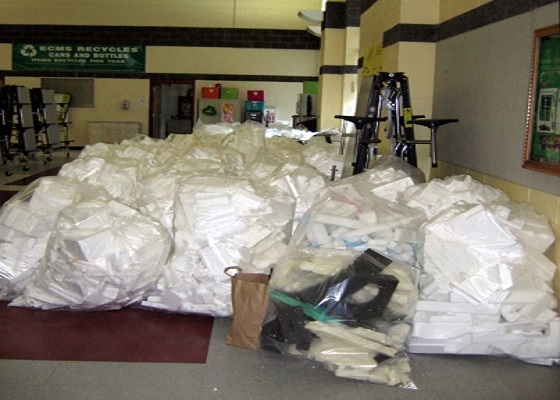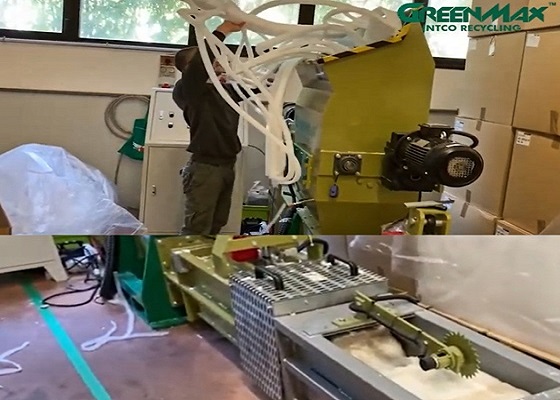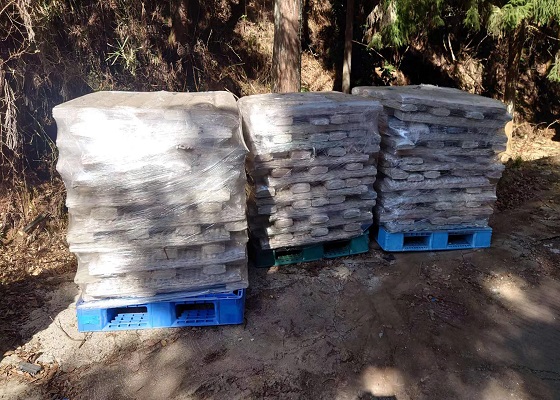New Developments in Foam Recycling Offer Hope for a More Sustainable Future
Foam products, such as expanded polystyrene (EPS) foam, have long been a major contributor to plastic waste pollution. Foam waste pollution is a major environmental issue that arises from the disposal of foam products such as polystyrene (commonly known as Styrofoam). Foam products are popularly used for packaging and insulation due to their lightweight and insulating properties, but they are not biodegradable and can persist in the environment for hundreds of years. But recent developments in foam recycling are offering hope for a more sustainable future.

One of the latest initiatives in this area comes from Uber Eats and Loliware, who have teamed up to introduce edible packaging for hot and cold foods. The partnership aims to reduce the amount of plastic waste generated by food delivery services, which has become a significant environmental issue in recent years. In Europe, a new initiative called the "Recycle-to-Polyol" project has been launched to develop a circular economy for polyurethane foam, which is used in a wide range of products, including furniture, mattresses, and car seats. The project aims to develop a closed-loop system for the recycling of polyurethane foam, in which the material is chemically transformed into new foam products. This approach has the potential to significantly reduce the amount of waste generated by the foam industry.

These developments are just a few examples of the many efforts underway to promote foam recycling and reduce plastic waste. As awareness grows about the impact of plastic pollution on the environment and human health, companies and governments around the world are stepping up their efforts to find sustainable solutions.

But people have to admit that, the foam industry is constantly developing new ways to reduce pollution, but so far it hasn't found an equally affordable alternative. In addition, there are many kinds of waste foam and wide range of application, which can not be cancelled in a short time. At present, the most appropriate solution is to mechanically recycle foam. As we look to the future, it is clear that foam recycling will play an increasingly important role in creating a more sustainable world. By working together and embracing innovation, we can turn what was once a major source of waste into a valuable resource for creating new products and protecting our planet. INTCO Recycling will always here to offer the help about foam recycling and provide GREENMAX foam recycling machines.
